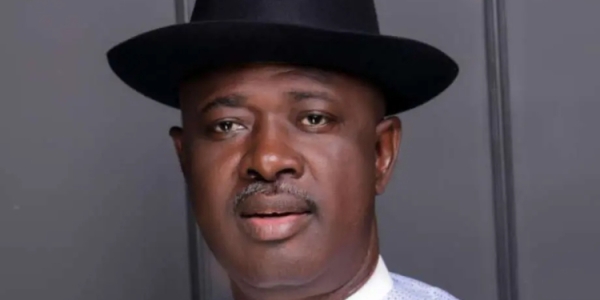Minister of State for Petroleum Resources (Oil), Heineken Lokpobiri, has advised the family of the late Head of State, General Sani Abacha, to refrain from commenting on the resolution reached by the Federal Government regarding the controversial Oil Mining Licence (OML) 245.
Lokpobiri’s statement follows comments from Mohammed Abacha, the son of the late head of state, who urged the minister to retract his public statement about resolving the disputes over OML 245 and resuming production in the national interest.
In a letter of protest written by Senior Advocate of Nigeria (SAN) Reuben Okpanachi Atabo, the Abacha family gave Lokpobiri a 14-day ultimatum to withdraw his claim or face contempt of court charges. The letter, delivered to the offices of the Attorney General of the Federation (AGF) and the Oil Minister on July 5, argued that Lokpobiri’s claims were false and disregarded ongoing court cases regarding Malabu Oil and Gas ownership.
Responding to the Abacha family’s statement, Lokpobiri said, “I don’t want to join issues with the Abacha family, but I can assure you that we are resolving all the issues with OML 245 under overriding national strategic interest. This matter has lingered on for the past 28 years. And if I were a member of the Abacha family, I wouldn’t even raise my head. As Heineken Lokpobiri, I can’t give any Lokpobiri a license. That in itself is criminal. So if they know what they are doing, they should keep quiet.”
Lokpobiri, an English-trained lawyer, emphasized that oil blocks are federation assets, and the federal government will ensure that Nigerians benefit from them.
History of Litigation
OML 245, considered one of Nigeria’s most prolific oil blocks, was acquired by Malabu Oil and Gas, a company belonging to the Abacha family, in 1998 for $2 million. In 2001, under former President Olusegun Obasanjo, the federal government revoked Malabu’s license due to “questionable practices.” Malabu challenged the revocation in court and reached an out-of-court settlement with the government under former President Umaru Yar’Adua in 2006.
In 2011, Shell and Eni acquired the block for $1.3 billion from Malabu in a deal approved by the Nigerian government. Since then, there have been ongoing allegations and litigation, with Transparency International and other anti-corruption groups alleging bribery and corruption in the deal.
Regarding the 28-year crisis and litigation, Lokpobiri recently stated, “The core issue revolves around the agreement between the federal government, Shell, and ENI, wherein the Federal Government facilitated the transfer of rights from Malabu to Shell/ENI in exchange for consideration. This process was conducted transparently and by established legal frameworks.”


